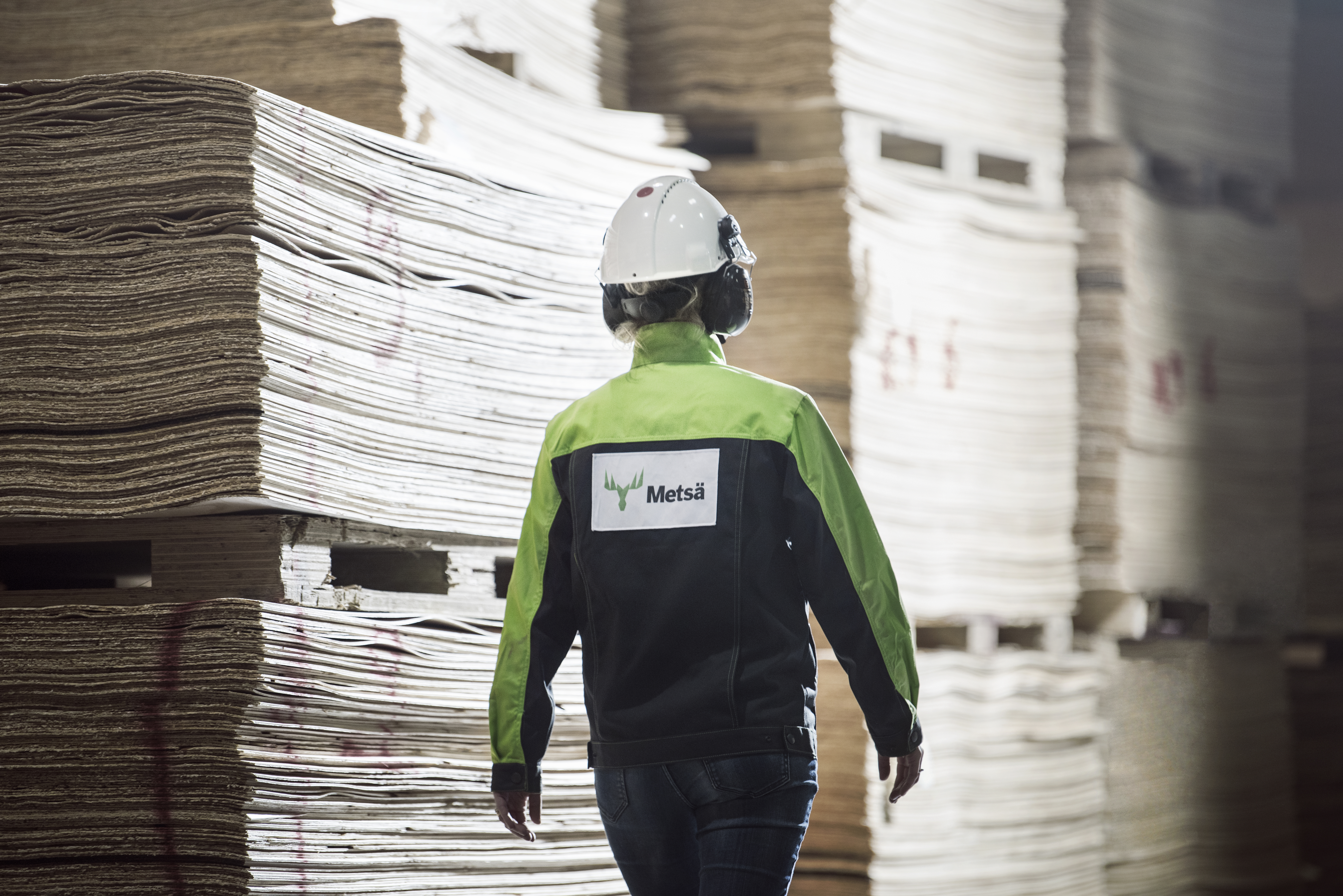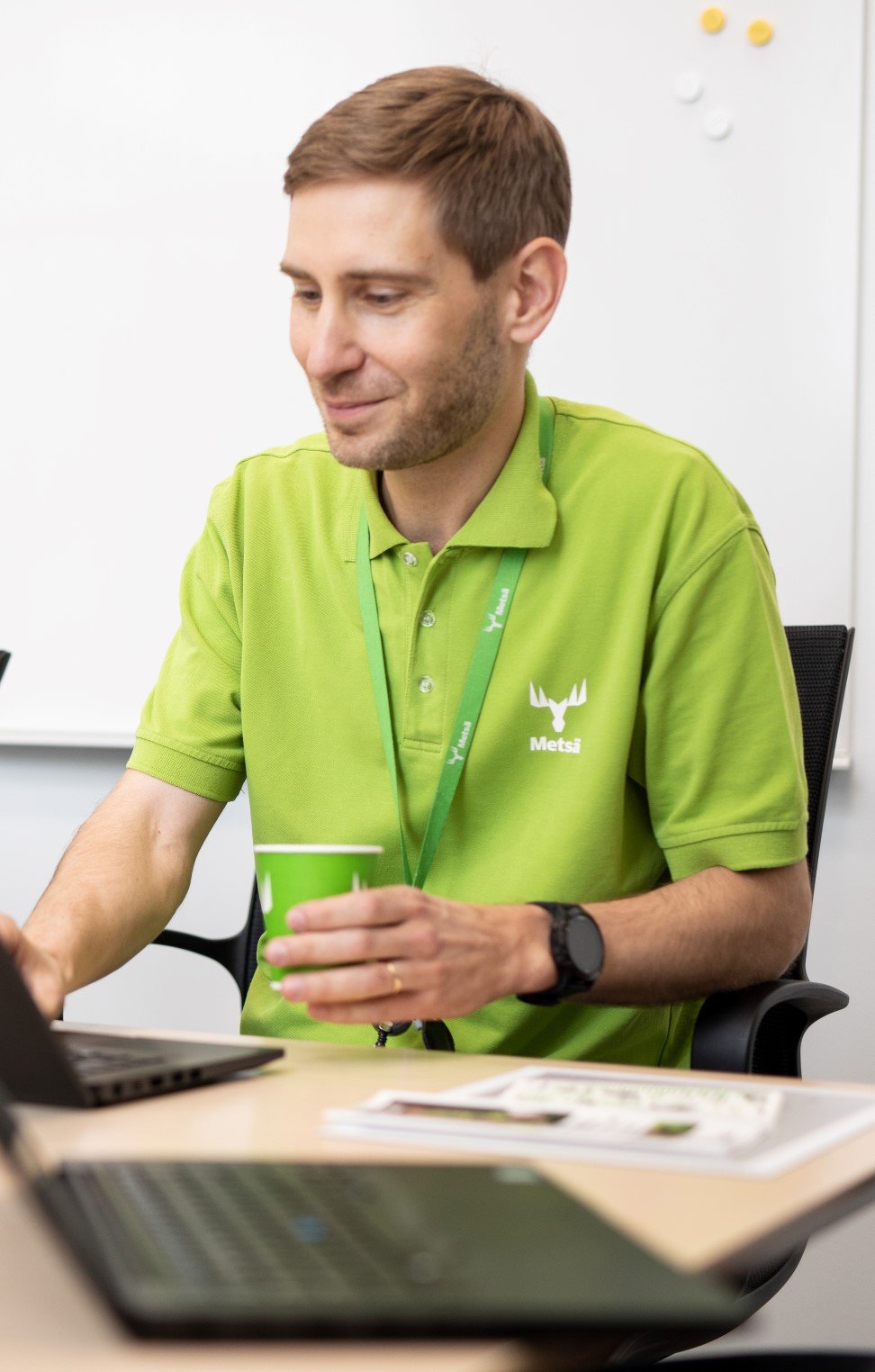"We want to be a forerunner in responsibility. We consider sustainability throughout the entire value chain, and our goal is for our mills to be fossil-free by 2030," says Kristian Isaksson, the Development Manager of Metsä Fibre's supply chain.
This line of thinking is visible in the bioproduct mill's logistics. Wood processing and pulp loading are carried out with electric machines. The pulp distribution centre has been automated, and the mill area includes electrified rails.
Most of the pulp is exported, and it is transported to the export harbour of Vuosaari in Helsinki via a network of electric trains. The logistics have been planned in cooperation with the Finnish national railway company VR Transpoint.
"VR Transpoint is Metsä Group's strategic partner in implementing responsible logistics solutions. The electric train connection from Äänekoski bioproduct mill to Vuosaari harbour represents the most ecological way of moving the flow of goods," adds Kristian.
In total, these solutions save 1,200,000 litres of fossil fuel a year, which corresponds to 3,230 tonnes of carbon emissions.
Production side streams put to use
Implementation of the circular economy at Äänekoski is at an advanced stage. The product gas produced from bark is used in the mill's own processes where it replaces 45,000 cubic metres of heavy fuel oil every year.
In Metsä FIbre, resource efficiency is the utmost important goal. The aim of production is to make full use of all side streams. The biogas unit produces biopellets and biogas from the wastewater treatment plant's sludge.
Specialty Minerals Nordic, which operates in the mill area, uses the carbon dioxide generated in the lime kiln for the production of precipitated calcium carbonates. The bioproduct mill also has a sulphuric acid unit. Because the mill area is quite compact, the transport distances between the various production units are also short.
"In total, these solutions save 1,200,000 litres of fossil fuel a year, which corresponds to 3,230 tonnes of carbon emissions."

More than self-sufficient
In 2019, Metsä Fibre accounted for 10% of the electricity produced from renewable energy sources in Finland, and 14% of renewable energy. The steam generated at the bioproduct mill is also used to provide heat for the district heating network in the town of Äänekoski and in the production of Valio's Aura blue cheese.

